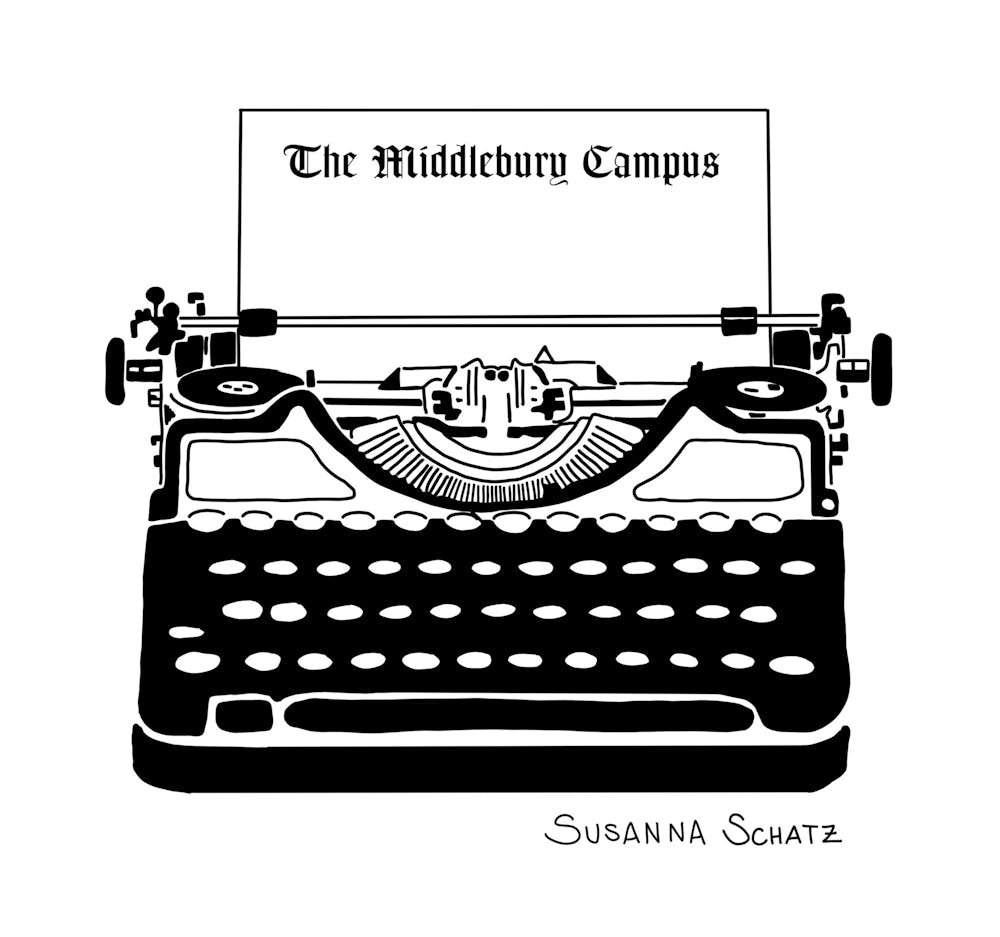While the long-term impacts of the Trump Administration’s recent executive orders regarding immigration and budget cuts are yet to be fully realized, it is clear that this administration intends to target universities and vulnerable populations within them. The Trump administration's policies have had a disproportionate effect on certain groups at our school, such as international students concerned about looming deportations. STEM students may be feeling pressure from cuts to research funding that would stymie their professor’s projects in BiHall, while graduating seniors have reported career shifts in light of cuts to the federal government and targeted industries.
We call for sustained political engagement among the student body; this does not have to resurrect the “Resistance” movement of 2017, but disconnecting from politics and the very real effects the new administration will have on Middlebury is not an option. Students may only spend four years here, but we are all invested — or should be invested — in the continued growth and future of Middlebury College as a center of learning and optimism.
Our bubble is fragile, after all; one poorly worded letter from Old Chapel or provocative incident among the student body could attract unwanted national scrutiny to the college. We should not be afraid to have difficult conversations or to address controversial subjects, and for the good of the college, and for the good of the institution we leave to future Middlebury students, we all should be aware of the attacks on higher education and the unfortunate new outlook for many vulnerable groups on our campus.
The college also has a responsibility to be forthright with the students about its approach to the Trump administration. We acknowledge communication from the college, such as emails regarding political events, are often impersonal and otherwise unproductive. However, the question of whether or not Middlebury is implicated in wider national trends, and understanding how our students will be affected by these developments are essential to our student body.
Since Middlebury regards itself as a forum for political debate and free speech, the college should be able to communicate openly about how the Trump administration is affecting its students, as well as how it might impact the future of Middlebury regarding the diversity of its student body, federal funding for financial aid and grants, and its course offerings. Tell us the truth, no matter how ugly our new reality may be.
Higher education has been under considerable criticism for the past few years, especially regarding free speech on campuses, research priorities, affirmative action and other Diversity, Equity and Inclusion (DEI) efforts. Despite what is often described as the “Middlebury bubble,” our institution is not immune to the effects of the outside world, nor to its criticism.
If Middlebury can be put under fire for its values and belief in free speech, the college should be able to respond to its critics. Let’s pick our battles wisely: to defend the most endangered affected members of our community without ceding ground on our values does not require us to engage in every fight or join every lawsuit against the federal government. For our own security and the college’s well-being, we should work to preserve Middlebury as we know it.
Most of us do care about what happens to our school and the status of its national reputation, whether that value lies in the recognizable name on our resumes, sentimental nostalgia for our time here or the experiences of future students who will follow in our footsteps. The uncertainty of this moment also requires us as a student body to consider the value of our education, and what makes a liberal arts education worthwhile.
Despite what the Trump administration might consider superfluous or unnecessary curriculum, Middlebury prides itself on requiring students to approach core educational ideas from many different perspectives. If Middlebury prides itself on these values, we must be able to defend them and be willing to engage in civil discourse about why our different departments each hold value.
As Middlebury approaches the next four years with a new president of our own, Ian Baucom, we must consider the impact Trump’s administration will have on Middlebury. If only for alumni relying on the name-recognition Middlebury provides, or, perhaps more importantly, for the classes of 2029 and 2029.5 that will be opening their acceptance letters this month, Middlebury students should be aware of the effects this administration brings and the institution itself should be transparent about the realities of the situation with the student body.
The stakes have never been higher for colleges and universities across the country: once held in bipartisan esteem, higher education is now politicized and under an existential threat in terms of funding, safety and intellectual freedom. We must recommit ourselves to the principles of free inquiry, vigorous debate and mutual respect that define our institution’s academic and social culture. It is times like these when an institution such as Middlebury defines itself.




